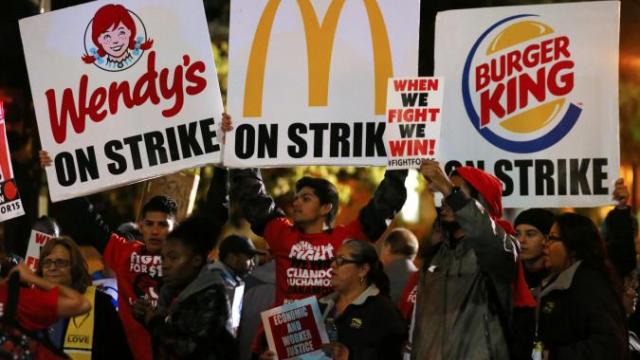
Scores of demonstrators were arrested on Tuesday as U.S. fast-food and airport workers led nationwide protests for higher pay and union rights in their first major action since Donald Trump was elected president.
Rallies organized by the union-backed Fight for $15 group targeted McDonald's restaurants in several major cities.
Baggage handlers and janitors at Chicago's O'Hare and Boston's Logan airports also demonstrated in support of starting pay of $15 per hour. Airport officials said travel was not disrupted.
More than 200 protesters gathered before dawn at Zuccotti Park in New York City's Financial District, banging drums and chanting slogans. About a dozen protesters were arrested after blocking rush-hour traffic near a McDonald's restaurant.
"When we started demanding $15 ... people thought we were crazy, but we were just demanding the basic minimum to survive," said protestor Alvin Major, 50, a Guyanese immigrant who lives in Brooklyn and works at a KFC restaurant.
"Right now I can barely pay my bills," said Major, who has four children and a sick wife.
Police and media reported multiple arrests in several cities after protesters clogged traffic. The arrests included 55 in the Chicago area, 34 in Cambridge, Massachusetts, 39 in Detroit, and 40 in Los Angeles.
Police in New Orleans and Memphis, Tennessee, reported smaller protests and no arrests.
"The goal is $15 an hour with benefits because many contractors lose benefits without notice," said Andy Hernandez, 26, a bag runner transferring luggage between planes at Los Angeles International Airport, who earns $10.65 per hour and is a member of the Service Employees International Union's United Service Workers West.
Home health and child care providers, as well as drivers for ride service Uber joined the 'Fight for $15', which receives financial support from SEIU.
Living in Poverty
President-elect Trump said last year that U.S. workers' wages were "too high" and made the nation uncompetitive, but this year, he has said the minimum wage should rise, with states taking the lead.
Trump's picks and candidates to lead top federal agencies thus far have been pro-business, and his choice for Labor Secretary will have a big impact on the administration's approach to the issues of working conditions and unions. Trump is due to take office on Jan. 20.
McDonald's said in a statement that it invests in its workers by helping them to earn degrees and on-the-job skills. The company last year raised the average hourly pay to around $10 for workers in the restaurants it owns. That did not apply to the majority of U.S. McDonald's workers since most of the chain's domestic restaurants are owned by franchisees who set wages for their employees.
Opponents to raising the minimum wage say higher costs will force restaurants to cut hiring, and that some businesses would not survive.
Vermont senator and former Democratic presidential candidate Bernie Sanders on Tuesday tweeted in support of protesters, writing: "If someone in America works 40 hours a week, that person should not be living in poverty."
Hopes for an increase in the $7.25-per-hour federal minimum wage were dashed earlier this month by the election of a Republican-controlled U.S. Congress.
Still, voters in Arizona, Colorado, Maine and Washington approved state minimum wage increases advocates vowed to continue pressing their case at the state and local levels.
Home care worker Sumer Spika, 37, carved out time between her morning and evening shifts to join the Minneapolis protest.
"This is what I had to do for someone to listen," said Spika, who makes $12.93 per hour as a state employee. She is a member of an SEIU-affilated union, but earns no overtime.
3 WAYS TO SHOW YOUR SUPPORT
- Log in to post comments

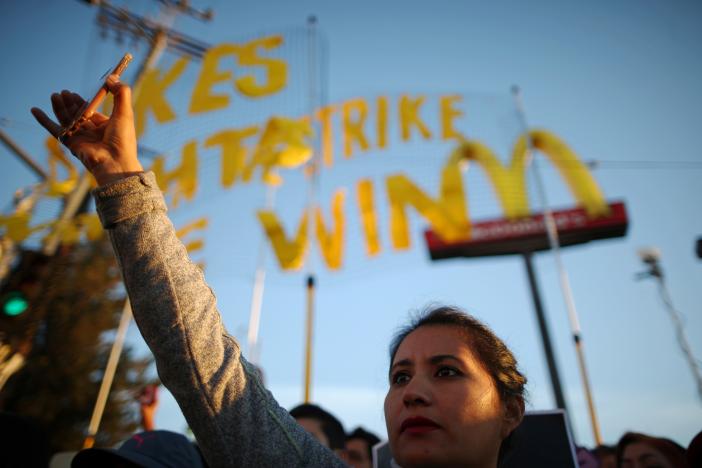
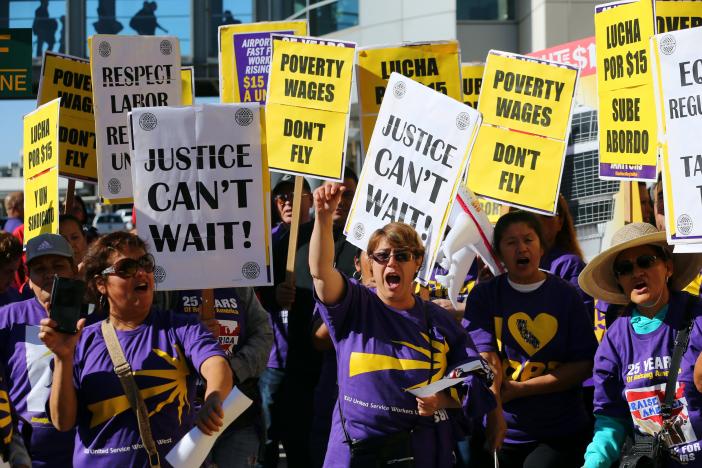
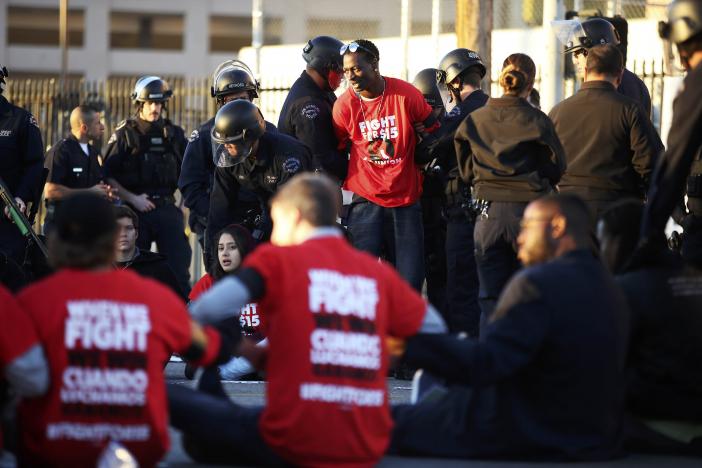
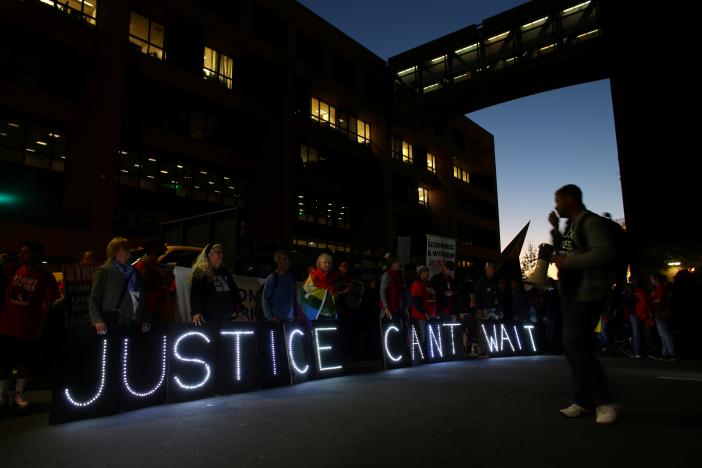











Comments
DH Fabian replied on
Good luck
We have to assess our situation, and face the facts. The US shut down/shipped out a huge number of jobs since the 1980s, ended actual welfare in the 1990s. This created an abundant surplus of job-ready people who are desperate for any job at any wage. There's no need to pay more. Businesses are competitive, for-profit entities, not social service agencies. The rules have all changed. Most of us could easily be replaced by tomorrow morning.